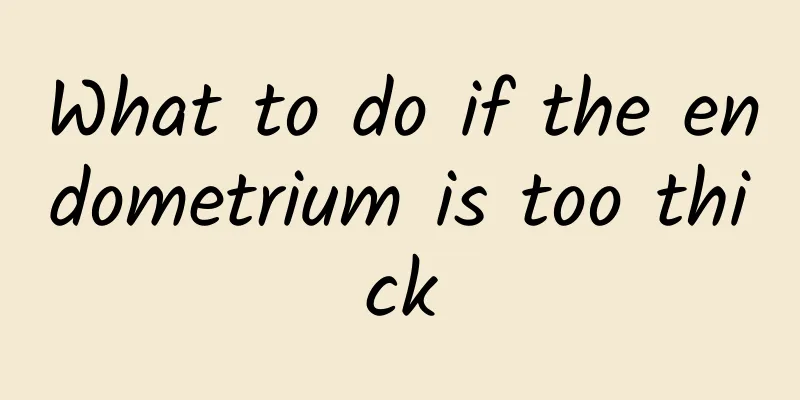What to do if appendicitis becomes purulent

|
When appendicitis is more serious, it can cause suppuration. If it is not treated promptly, it may cause perforation, which poses a great threat to the patient's life. Therefore, if you have acute appendicitis, you must go to the hospital for treatment in time. Generally, surgery can provide good treatment. If misdiagnosis or improper treatment occurs, it may lead to serious complications, which will have a greater impact on health. What to do if appendicitis becomes purulent 1. Non-surgical treatment: It is mainly suitable for acute simple appendicitis, appendix abscess, acute appendicitis in early and late pregnancy, and appendicitis in the elderly with major organ lesions. 1. Basic treatment: including bed rest, diet control, appropriate fluid replacement and symptomatic treatment. 2. Antibacterial treatment: Choose broad-spectrum antibiotics (such as ampicillin) and anti-anaerobic drugs (such as metronidazole). (ii) Surgical treatment: It is mainly suitable for various types of acute appendicitis, recurrent chronic appendicitis, appendix abscess patients who still have symptoms after 3-6 months of conservative treatment, and patients who do not respond to non-surgical treatment. 1. Preoperative preparation: No eating or drinking should be allowed 4-6 hours before the operation. Appropriate amount of analgesics can be given after the operation time is determined. Broad-spectrum antibiotics should be given to those with suppuration and perforation. Patients with disseminated peritonitis need gastrointestinal decompression, intravenous infusion, and attention to correcting water and electrolyte disorders. Those with dysfunction of major organs such as the heart and lungs should consult with relevant departments for appropriate treatment. 2. Surgical method: It is most appropriate to complete the operation through an oblique incision in the right lower abdomen under local anesthesia. A small number of patients can also choose epidural anesthesia and general anesthesia through an exploratory incision in the right lower abdomen. The main method is appendectomy (conventional method and retrograde method). If adhesions are severe, subserosal appendectomy can also be performed. In a few cases of appendix abscess that are ineffective with conservative treatment, incision and drainage can be performed. When there is a lot of abdominal exudate, a drainage device can be placed. 3. Postoperative treatment: Continue supportive treatment, including intravenous infusion, analgesia, sedation and anti-infection, etc. The drainage material should be removed promptly, the incision should be folded on time, and attention should be paid to preventing and treating various complications. |
<<: What is McBurney's point of the appendix?
>>: How many days in hospital for appendectomy surgery
Recommend
How to regulate special constitution, TCM has a prescription to follow
Perhaps few people know about special constitutio...
How long does it take to boil the aconite without causing poisoning?
Many people don’t know what Fupian is, so what we...
My eyes were stabbed and there were a lot of red bloodshot
Our eyes are very fragile. If a foreign object en...
Is sleeping naked really good for your health? Why?
Sleeping naked means sleeping in the nude. Some p...
What are the common causes of acne on the lips and chin?
Acne is very common in life, especially among tee...
What are the medicinal values of rose hips?
Rosa rugosa is also called wild rose and mountain...
Herpes simplex virus
The herpes simplex virus can cause many diseases ...
What are the effects and functions of Sanmiao Pills?
Sanmiao Pills is a Chinese patent medicine. If co...
Causes of weight loss
In today's society, due to the continuous imp...
How to clean your stomach after the holidays
Every year during the Spring Festival and other f...
What are the symptoms of cervical pain
Cervical pain is generally caused by cervicitis. ...
There are white spots on the baby's seven-month-old gums
When normal babies just come out of their mother&...
Do I need to take medicine for a long time?
As we all know, cerebral infarction is now a very...
What is hyperthyroidism?
Hyperthyroidism is mainly an overactive thyroid g...
Can mycoplasma be transmitted to children?
First of all, we need to understand that mycoplas...









